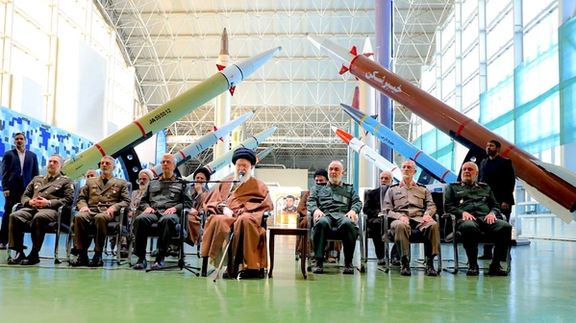Is the call for weaponization genuine?
The short answer is "No." Since 2003, Iran has consistently maintained that its nuclear program is peaceful. The push for weaponization comes from a small faction of hardliners—about 39 lawmakers, making up just over 10 percent of the 290-seat parliament. This parliament, however, has steadily lost its influence, with Supreme Leader Ali Khamenei increasingly bypassing it and delegating key decisions to others, such as the heads of the three branches of government and the unelected Expediency Discernment Council.
The longer answer lies in a popular Iranian saying: "No leaf falls from any tree without the Supreme Leader's permission." Khamenei makes all key decisions but prefers to give the appearance that others are initiating actions. If something fails, he can shift the blame; if it succeeds, he claims the credit. This pattern has been seen before, including during the negotiations that led to the 2015 nuclear deal with world powers.
Is weaponization something Khamenei wants?
Perhaps. However, Khamenei's primary goal is likely to disrupt and unsettle Iran's regional neighbors and adversaries. Tehran has almost lost one of its main tools of leverage—Hezbollah—after Israel significantly weakened the group's influence in the region. Now, Khamenei can shift focus to the nuclear issue, using it as a means to exert pressure on key players like the United States, Europe, Israel, and Saudi Arabia, maintaining his influence in regional and international affairs.
Hasn't he issued a fatwa against weaponization?
Khamenei’s position on nuclear weapons has been ambiguous. While he was quoted as opposing weapons of mass destruction in 2010 and reiterated in 2018 that "using nuclear weapons is prohibited," he never explicitly declared it as a formal fatwa. Instead, Iranian officials framed his statement as equivalent to a fatwa. A fatwa, a religious decree declaring something haram (forbidden) or halal (permissible), can only be issued by qualified religious scholars under specific conditions. Since Khamenei's rise as Supreme Leader, some senior religious figures, including grand ayatollahs, have questioned his authority to issue such decrees.
Supporters of the 2015 nuclear deal, both in Iran and the U.S., pointed to this supposed fatwa as evidence that Iran would not pursue weaponization. However, critics argued that even a genuine fatwa can be reversed by its issuer or challenged by other religious authorities. The recent calls from Iranian lawmakers for a shift in nuclear policy, citing the "dynamism of Shariah," have validated those critics' concerns, proving that the fatwa was never a permanent or uncontested safeguard.
Has anyone in Iran challenged the call for weaponization?
Yes, there has been pushback. Some critics have voiced their concerns cautiously, while others have openly warned Khamenei, politicians, and the public about the dangers of weaponization. Meanwhile, some hardliners remain enthusiastic about the idea.
The conservative website Nameh News quoted politician Hossein Anwari, who stated that Iran’s strategy towards Israel aligns with the Supreme Leader's directives, urging caution against "radicalism" and advising not to act prematurely. Meanwhile, reformist commentator Ahmad Zeidabadi, quoted by News24, argued that discussing changes to Iran's nuclear doctrine would not enhance deterrence but instead could provoke military attacks on the country.
How has Khamenei reacted?
Khamenei has remained silent on the issue so far. The closest statement came from Rassoul Sanaeirad, a deputy in the Office of the Commander-in-Chief of the Iranian Armed Forces, who told the IRGC-linked Fars News Agency that discussions about changing Iran's strategic nuclear policies "cross regional and international red lines." However, it is unclear whether Sanaierad's remarks represent his personal opinion or reflect Khamenei's official stance on the matter.
Is this the final verdict on the issue?
Probably not. As observed over the past 45 years, statements by Iranian officials are often temporary, remaining valid only until another official steps in to contradict or refute them.








